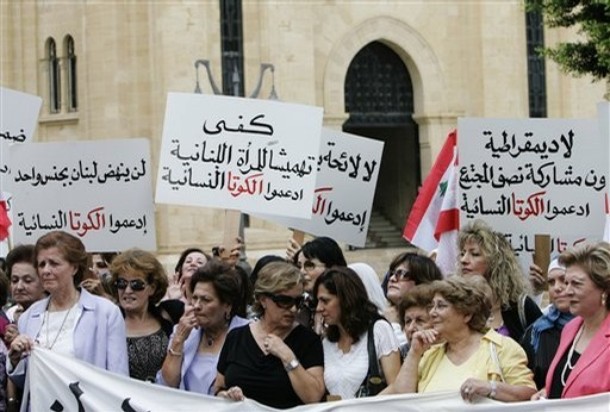Today, women in Lebanon are fighting for equal access to opportunities and rights without prejudice against their gender, their expectations and their careers. This fight requires attention for and analysis of the deep-rooted patriarchal structures that by their very nature exclude women. When Lebanese women decide to become politically active, they are faced with many challenges, from society’s expectations of them to gender stereotyping, and often limited access to the necessary resources to build a political career.
Lebanese politics are exclusionary and dominated by a political elite which has extensive financial resources and social networks allowing it to exercise and attain power. Lebanese politics are even more exclusionary of women, who have to cope with social and cultural prejudices against them in public life, negative stereotyping in the media, and an entrenched clientalist sectarian system which is controlled by a tiny percentage of powerful men.
To better inform its Women Empowered for Leadership (WE4L) Programme in Lebanon and strengthen its interventions, Hivos aims to understand, document and analyse the patriarchal obstacles to women’s political participation. To this end, we commissioned Beirut-based research and consultancy firm Beyond Reform and Development (BRD) to produce a quantitative and qualitative baseline study on women’s political participation In Lebanon.
The study examines the cultural, economic, social, religious, legal and institutional barriers that hinder women’s participation in the political and public arenas. It has five main sections (which you can download from the right sidebar):
- Executive Summary & Chapter 1: Women and the Political System in Lebanon
- Chapter 2: Women’s Political Participation in Lebanese Political Parties
- Chapter 3: Women’s Participation in Unions and Syndicates
- Chapter 4: Review of Donor Programmes
- Annexes: Summary of findings
This baseline study is also a knowledge tool for any organisation, researcher or activist either looking for quantitative and qualitative data on women’s political participation in Lebanon or seeking to design a women’s rights or gender equality project in Lebanon.
The Women Empowered for Leadership Programme is funded through the Dutch Ministry of Foreign Affairs’ Funding Leadership and Opportunities for Women (FLOW) programme. It is implemented by Hivos together with local partners in five countries (Lebanon, Jordan, Malawi, Zambia and Zimbabwe).




